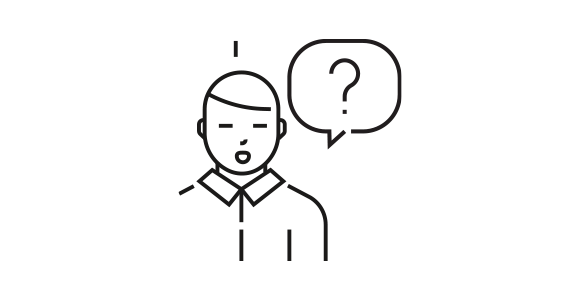What is good academic practice?
Jesper Vesterbæk, Senior Consultant, Education Law, SDU EducationWhy is it important?
Jesper Vesterbæk, Senior Consultant, Education Law, SDU EducationFAQ about consequences of a case of exam cheating?
Three tips for students
Senior Consultant, Education Law, SDU Education
The tips for students are:
- Do not copy directly from the source. But write down by hand in your own words what you have understood.
- Use more preparation time. And get better at planning the exam attempt.
- Everyone can make mistakes.
Self-plagiarism is when you use something you have written in a previous assignment without referring to it
Jesper Vestebæk, Senior Consultant, Education Law, SDU Education
What is self-plagiarism?
- This is when you reuse something from a previous assignment without the use of a source reference. It is okay to use something from a previous assignment as long as you source reference yourself.
- Remember that the teacher and external examiner also assess based on the work effort, so it is important to cite sources so that it is possible to assess your work effort
- In general, just don't use yourself. Instead, use the sources
Exam cheating often happens when proper citations are forgotten
Senior Consultant, Education Law, SDU Education
Here are the typical examples of exam cheating:
- Exam cheating is most often committed unintentionally.
- It occurs when there is a lack of understanding of academic practices.
- One might write too closely to the source without citing it.
- Using text from others' assignments without citing the source.
- If students have shared notes and end up using the same texts from them without citing the source.
You will be called to a meeting called a "hearing," where the case will be examined from both the study's side and the student's side.
Senior Consultant, Education Law, SDU Education
What happens when SDU receives a case of potential exam cheating?
- When SDU receives a case from a study program about possible exam cheating, the staff in Education Law first review the case and the documents.
- Next, Education Law sends all the material about the cheating case to the student and invites them to a meeting called a hearing.
- At the hearing, there will be someone from Education Law and someone from the student's program, typically the program leader. The student is also welcome to bring an advisor or a support person.
- At the meeting, there will be a discussion about what happened. It is particularly important to hear the student's side of the story.
- After the meeting, Education Law processes the case and assesses whether there has been a breach of the rules and whether the case should have consequences for the student.
There are several different consequences depending on the severity of the cheating case and how often it has occurred.
Jesper Vesterbæk, Senior Consultant, Education Law, SDU Education
What can be the consequences of a cheating case?
- A case can be completely dropped if it turns out there was no breach of the rules.
- You can receive a warning and guidance on where to read more about, for example, the rules for citation.
- You can be suspended for a semester or two.
- You can also be permanently expelled from the study program.
The podcast "Studielivet" (Only in danish)
Part 1: Interview with Jesper Vesterbæk, Senior Consultant, Education Law, SDU Education. The interview is about the consequences of cheating in exams and also about how to avoid cheating in exams - including how to avoid unintentional cheating.
Part 2: Interview with Jens Dam, Head of Education at the University Library at SDU. The interview is about good academic practice in connection with writing assignments.
